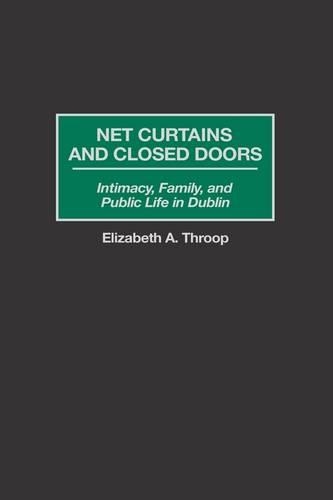
Net Curtains and Closed Doors: Intimacy, Family, and Public Life in Dublin
(Hardback)
Publishing Details
Net Curtains and Closed Doors: Intimacy, Family, and Public Life in Dublin
By (Author) Elizabeth A. Throop
Bloomsbury Publishing PLC
Praeger Publishers Inc
30th June 1999
United States
Classifications
Tertiary Education
Non Fiction
Sociology: family, kinship and relationships
European history
306.094183
Physical Properties
Hardback
192
Description
It has been argued that the family is a clearly bounded centre of love and emotion in the lives of people. It is a centre which is separate from more "public" arenas. The Irish family, however, has until recently had neither clear boundaries nor overt emotional nurturance. This is due in large measure to English Colonialism and the influences of the Catholic Church upon Irish culture. English colonialism and the strong strain of Irish Catholicism have subjected Irish cultural understandings of "private life" to extensive Church and government intervention. This has influenced the Irish experience of marriage, family life, community and work. These disparate areas of life are, for the Irish, more similar emotionally and behaviourally to each other than they are different. In addition, the Irish generally live in small face-to-face communities, even in urban areas, meaning that people are uncomfortable with too much self-disclosure and rely on long-term interaction to create closeness. Events, not emotions, are analyzed. While some social scientists argue that the modern or postmodern self is somehow less authentic than those living in "primitive" societies because different aspects of life are fragmented and discsonnected (for example home and work), the author shows how among families she studied in Ireland the notion of dichotomies is somewhat false, and that people's relationships in the different arenas are not very different.
Author Bio
ELIZABETH A. THROOP is Assistant Professor in the Department of Sociology, McKendree College, Lebanon, Illinois.
